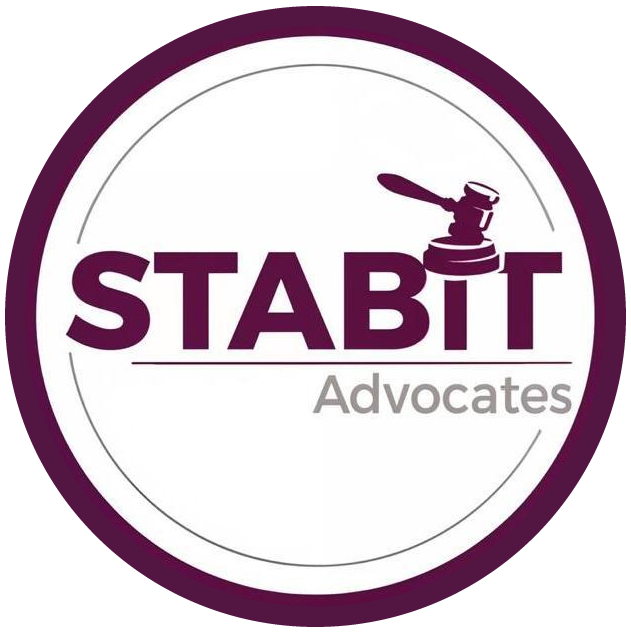The Remote Work Revolution: Navigating the Legal Landscape of the New Corporate Reality. A stabit…

The Stabit Advocates Guide on Mortgages
February 23, 2023 9:52 pm
Our Legal Guide on Mortgages in Rwanda defines a mortgage as an agreement between a lender and a borrower that gives the lender the right to take the borrower’s property if he or she fails to repay the loan amount borrowed plus interest.
In some other jurisdictions a mortgage is taken to be as a loan from a bank that allows you to buy or build a property with that property acting as collateral in case the borrower defaults.
Most of the mortgages have a repayment time frame of between 20 years and 30 years. Many banks in Rwanda offer options for diaspora banking and an option to refinance. A refinance is a loan acquired using the equity from the partial repayment of the initial mortgage.
It is however paramount to note that based on our practices, a mortgage is a loan whose performance is secured by real property (fixed property such as a house or land). A registered mortgage gives the lender/creditor power to take ownership of the property if the borrower fails to pay back the loan. The lender can sell, lease, manage, appoint a receiver or acquire the property to recover the loan.
Therefore, for a mortgage to be valid and enforceable in Rwanda, it must be registered tough and Stabit Advocates “The Best Lawyers in Rwanda” we are therefore here to take you through all the processes. The steps for registration shall be discussed later in this article.
- How to legally procure a mortgage as security in Rwanda?
In this article, we laid out for you the process of applying for a mortgage in Rwanda, and some of the documents the applicant needs for the said.
All around the world, people struggle with the question of how and where to get a mortgage, and what documents the lenders shall require to approve it.
In Rwanda, most of the lenders or financial institutions require a down-payment of at least 20%. For a borrower, it is imperative to understand his or her finances and decide if it is the right time to apply for a mortgage. Generally, the best one’s financial situation is, the less one will have to pay upfront, and the lower the interest rate one can get from the lender.
However, other institutions other than financial institutions can also issue mortgages on the basis that the Institution has a license from that National Bank of Rwanda which has the mandate to issue the same.
In this article, we shall take you through the necessary documents and requirements a borrower shall need to apply for a mortgage and explain how each will make his or her application powerful.
- The borrower must have/open an account with the financial institution;
It is advisable to apply for a mortgage with a bank or any financial institution where a borrower has banked with before. The borrower is required to have an account with them. Having banked with the bank previously is a plus that makes the approval process easier. It is therefore imperative to apply to a borrower’s banker if they have reliable terms and conditions.
- Income background;
Some of the banks in Rwanda shall require a borrower to submit a statement that gives a background of steady income from a reliable and legal source. For employees, an employment contract to determine whether the borrower has a steady income and how much he/she earns.
- Banking history/statement;
A bank statement comes in to corroborate the fact that the borrower receives the income stated in (b) above. The statement is also a pulse check for your financial fitness as it shows how the borrower spend his/her income with the frequency or infrequency in the borrower’s depositing and withdrawal history.
- Certificate of marriage or celibacy;
These documents prove celibacy or marriage and helps the banker to understand better the borrower’s marital status. The status of the borrower indicate that he/she has a partner that can help pay back the loan. It is important to note that the borrower needs consent from his or her spouse to apply for a loan.
- Proof of ownership of the mortgage property;
This is one of the most critical documents in mortgages. The bank or any financial institution will require a borrower to submit proof that the potential mortgage property belongs to the borrower.
- Evaluation Report of the property from a certified valuer;
The lender requires an evaluation report of the property from its own valuer.
- ID for a national and/or passport for the foreigners;
In the law of mortgages, identification is of critical importance. The lender requires the borrower to possess proper identification. The names on the ID should correspond with the names on the property certificate of titles.
- The mortgage application letter;
Once borrower has all the above mentioned requirements, he/she can go ahead and begin the process of applying for a mortgage. This process is moved by submitting a formal application letter to lender of your choice. A passport photo is another requirement which must be attached on the form of application.
- Requirements for the registration of mortgages in Rwanda:
These are divided into two;
Requirements for an individual and requirements for a legal entity;
Requirements for an individual includes the following;
- A notarized mortgage agreement signed by the lender and the borrower and his or her spouse.
- Evaluation report made by a certified valuer.
- Payment of registration fee of 20,000RWF.
- Payment of 10,000 RWF for any amendments.
Requirements for the legal entity;
- A notarized mortgage agreement signed by the lender and the borrower and his or her spouse.
- Evaluation report made by a certified valuer.
- Payment of 20,000RWF for registration and;10,000RWF for any amendments.
- A notarized board resolution authorizing the company to secure a loan.
- A copy of the company registration certificate.
If you love our article on “Our Legal Guide on Mortgages in Rwanda,” check back here for more legal news
Contact Information
Stabit Advocates
Website: www.stabitadvocates.com
Email: info@stabitadvocates.com
Phone: +250 789 366 274
For more information or to discuss your case, please contact us at www.stabitadvocates.com.
This guide is intended to provide general information and does not constitute legal advice. For specific legal advice tailored to your situation, please consult with a qualified attorney at Stabit Advocates.




This Post Has 0 Comments